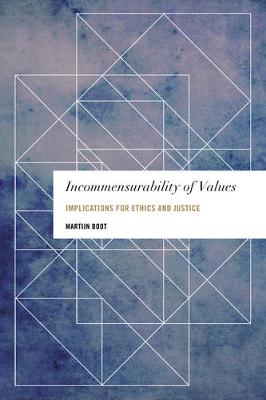Values and Identities: Crossing Philosophical Borders
1 total work
Incommensurability and its Implications for Practical Reasoning, Ethics and Justice
by Martijn Boot
Published 27 June 2017
If values conflict and rival human interests clash we often have to weigh them against each other. However, under particular conditions incommensurability prevents the assignment of determinable and impartial weights. In those cases an objective balance does not exist.
The original thesis of this book sheds new light on aspects of incommensurability and its implications for public decision-making, ethics and justice. Martijn Boot analyzes a number of previously ignored or unrecognized concepts, such as 'incomplete comparability', 'incompletely justified choice', 'indeterminateness' and 'ethical deficit' - concepts that are essential for comprehending problems of incommensurability.
Apart from problematic implications, incommensurability has also favourable consequences. It creates room for autonomous rational choices that are not dictated by reason. Besides, insight into incommensurability promotes recognition of different possible rankings of universally valid but sometimes conflicting human values.
This book avoids unnecessary technical language and is accessible not only for specialists but for a large audience of philosophers, ethicists, political theorists, economists, lawyers and interested persons without specialized knowledge.
The original thesis of this book sheds new light on aspects of incommensurability and its implications for public decision-making, ethics and justice. Martijn Boot analyzes a number of previously ignored or unrecognized concepts, such as 'incomplete comparability', 'incompletely justified choice', 'indeterminateness' and 'ethical deficit' - concepts that are essential for comprehending problems of incommensurability.
Apart from problematic implications, incommensurability has also favourable consequences. It creates room for autonomous rational choices that are not dictated by reason. Besides, insight into incommensurability promotes recognition of different possible rankings of universally valid but sometimes conflicting human values.
This book avoids unnecessary technical language and is accessible not only for specialists but for a large audience of philosophers, ethicists, political theorists, economists, lawyers and interested persons without specialized knowledge.
